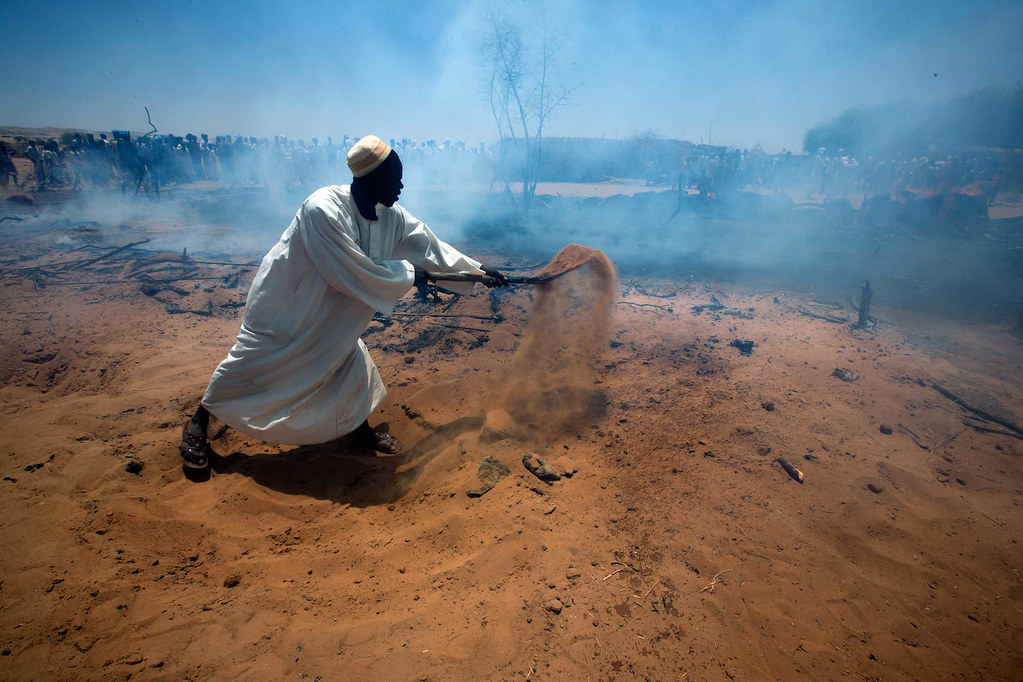
This is the second of a two-part blog sharing practical ideas and tools to help donors and aid organisations be more conflict sensitive during the ongoing political situation in Sudan. The first part of this series discusses why conflict sensitivity is so critical in the context of an evolving crisis.
As the political situation continues to unfold in Sudan, aid actors are working overtime to understand the dynamics, and to take the necessary operational and programmatic steps to navigate the evolving situation and avoid doing harm. This is something the aid sector has had to do many times and over many years in the Sudans, and there are lessons from the past that we can – and should – learn.
Appropriate localisation. During crises, local knowledge and relationships are critical to delivering aid programmes in a safe and conflict-sensitive way. Working with, empowering, and strengthening the capacity of local organisations is one of the most effective, sustainable, and appropriate ways of doing this. Donors and aid organisations must realise, however, that there is a difference between strengthening the capacity of local partners, and simply outsourcing the risky elements of programming to local partners. Such ‘dumping’ of risk is both unethical and conflict insensitive. Additionally, aid organisations should also be aware and empathetic to the risks and challenges faced by local partners in times of crisis. Very often, partners are increasingly pressured to deliver, even in the most difficult circumstances. Local partners should be equally involved in project design, development, implementation and monitoring and evaluation, budget development, strategic planning and developing operational, communications and security contingency plans. They should receive adequate core funding and training to develop the institutional strengths they need to be conflict sensitive, and as impartial as possible, themselves. Their guidance on how to adapt support and programming to sensitively navigate dynamic and volatile contexts is essential, both from the perspective of immediate practicalities and risks and long-term implications and sustainability.
Flexible donor funding. Donors play a key role in encouraging and enabling conflict sensitivity – or the reverse. Pressure to keep to original objectives, timelines, and indicators can lead implementing partners to prioritise ongoing delivery of an activity that is actively contributing to tensions or feeding a conflict. Time and resources for ongoing analysis, whether at the organisational or the cluster level, is important to ensure that aid actors understand the implications of what is happening around them, and how their work is interacting with that context. Timelines, modalities, objectives, targeting, and communication/community engagement should all be reviewed, considering new and changing dynamics to make sure they still make sense.
Adaptive management. Flexibility is also critical on the implementing partner’s side. Aid organisations should consider if their decision-making protocols are flexible, informed by analysis, and decentralised to the appropriate level. Organisations that over-emphasise centralised decision-making and procedural bureaucracy tend to struggle to respond to changing contexts quickly enough. Equally there can be a tendency to retract into siloed approaches during emergencies, which can undermine collective analysis and approaches. Aid actors must invest in field-based and national-level analysis and capacities to help them respond to crises in contextually relevant and conflict-sensitive ways. Tools that can help include rapid assessments and collective approaches to analysis and scenario planning.
Picking our partners wisely. Both donors and implementing agencies should review and assess their partnerships in times of conflict, and work to avoid empowering conflict actors or legitimising de facto political actors. This includes those who receive our aid, those we partner with in the delivery of our activities (NGO and government), and our private sector vendors and suppliers. Each of these categories comes with its own dilemmas, and sometimes it may feel like there is no choice but to work with actors whose means or goals are not coherent with our principles. In these situations, creative brainstorming should be done to consider how to minimise or mitigate any negative impact we may be having. New partnerships in times of crises should go through the same or more stringent review processes to ensure that any partnership or engagement does not contribute to tension or feed conflict.
Promoting transparency and accountability is now more important than ever in all our activities, whether in the humanitarian, development, or peacebuilding sectors. Aid organisations and donors should set the example, and insist that, as much as possible, their local NGO and government partners abide by the same standards. These are the values that often fall by the wayside in times of crisis – yet these are also the areas that may help to prevent future crises from happening.